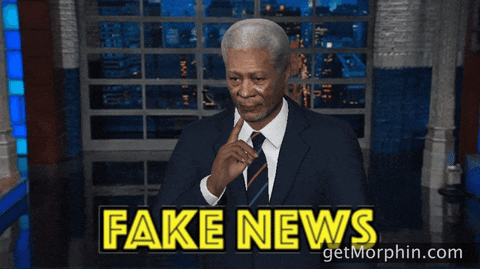More trouble with income inequality
Plus, the irony of fake news
“I would've wanted to make things right immediately because I'm the one who did something wrong.” This week’s episode is about how to make amends.
BRAIN WAVES
Mind the gap. Income inequality is a pressing economic issue, but it’s also a social one. For instance, a new study found a link between income inequality and the spread of disease. Researchers analyzed nearly two decades of data from countries with high rates of income inequality and then looked at their per capita rates of tuberculosis. “We find that elevated levels of income inequality were positively associated with tuberculosis prevalence,” the study concluded. “Our cross-country regression results suggest that income inequality may create conditions where TB spreads more easily.”
Misinformed. People are more concerned with misinformation than ever. But ironically, “the scientific literature suggests that many of [these fears] are exaggerated,” according to a new study led by Sacha Altay at the University of Oxford. In the study, researchers asked the question: Why are people so worried about misinformation? In a survey done in the UK and the US, they looked at the psychological factors that might fuel people’s fear of misinformation. The strongest predictor of that fear is the “third-person effect.” That is, people believe others are more vulnerable to misinformation than they themselves are. And, in particular, they believe that “distant” others, as opposed to family and friends, are prone to misinformation. “Finally, we found that participants who report being more worried about misinformation are more willing to like and share alarmist narratives on misinformation,” the study added. In other words, a fear of misinformation seems to be associated . . . with sharing misinformation.
What kind of world is this? As you move through the world, it’s inevitable that your way of seeing things won’t always align with the people around you. Our beliefs about the world can cause conflict, but we can also use this knowledge to live happier and more harmonious lives. Listen to learn more.
ON THE HIDDEN BRAIN PODCAST
March 27: This week, an unusual story about two strangers who first met as adversaries. Like all of us, they came to quick conclusions about each other. But then, nearly a decade later, each man had the opportunity to pull the curtain back on the other's life.
ON THE MY UNSUNG HERO PODCAST
March 28: Wil Davenport reflects on the comment from a therapist that renewed his sense of purpose.
Don’t forget to send us the story of your unsung hero! Record a voice memo on your phone and email it to myunsunghero@hiddenbrain.org.
MIND GAMES
What call for help, when written in capital letters, is the same forwards, backward and upside down?
LAST WEEK’S PUZZLE
There is a group of people in a room. Each person is wearing a birthday hat that is either orange or indigo. Each person can see everyone else’s hat but their own. One person shouts, "If you can see at least 6 orange hats and at least 6 indigo hats, raise your glass" Exactly 12 people raise their glasses. How many people are in the room?
The answer: 18. Explanation here.
FROM THE TWITTERATI…
A MOMENT OF JOY
Have an idea for Hidden Brain? A story you want to share with us? Send an email to ideas@hiddenbrain.org. And if you’d like to support our work, you can do so here. Listen to us on Spotify, Apple, Amazon Music or your favorite podcast platform.





